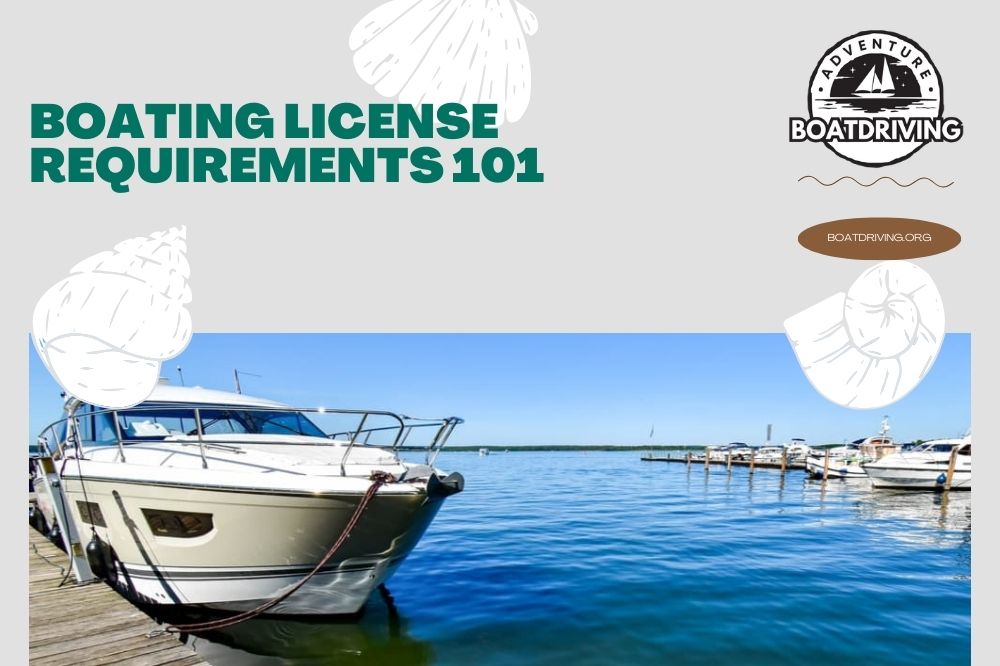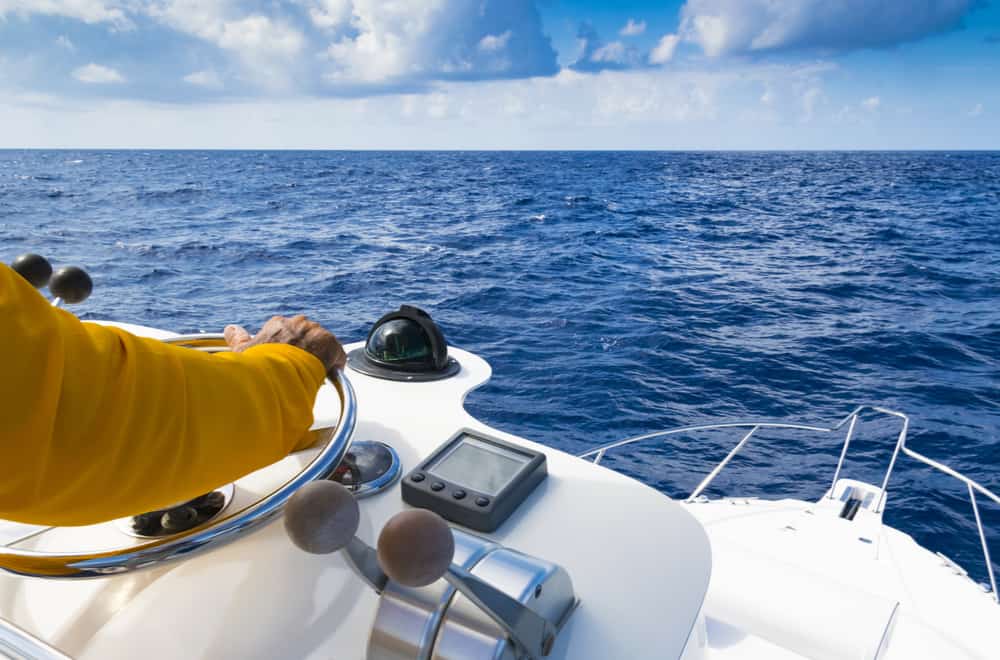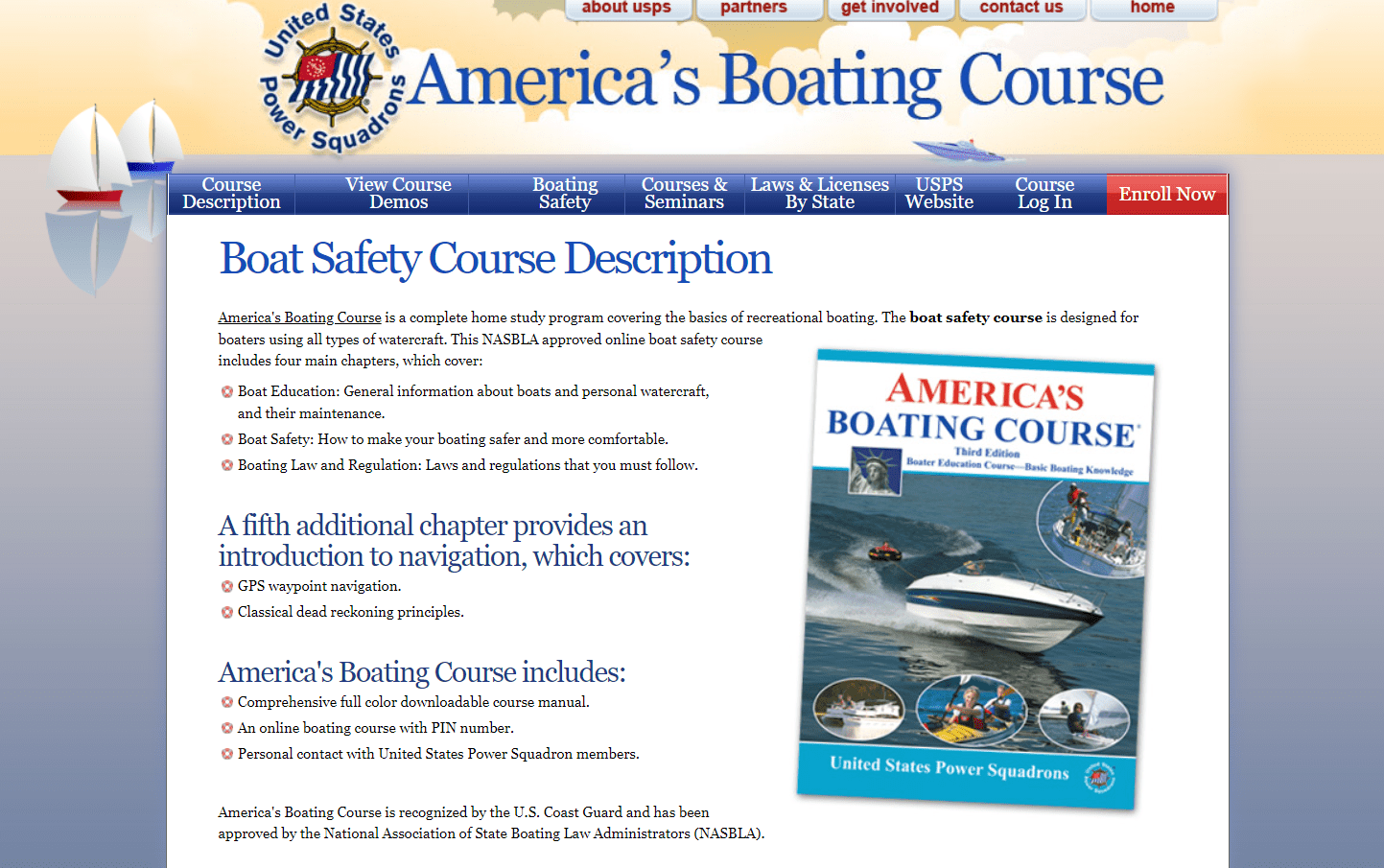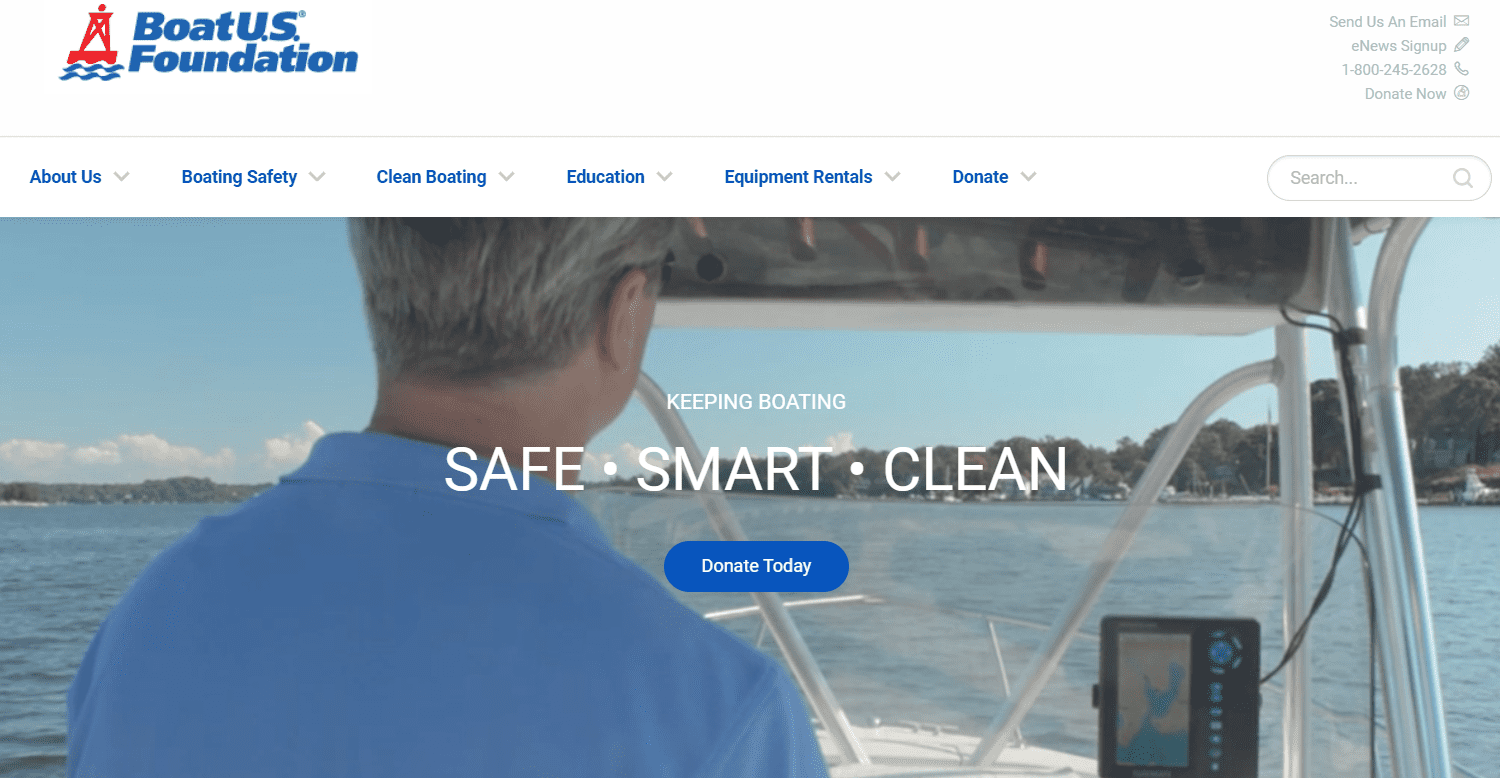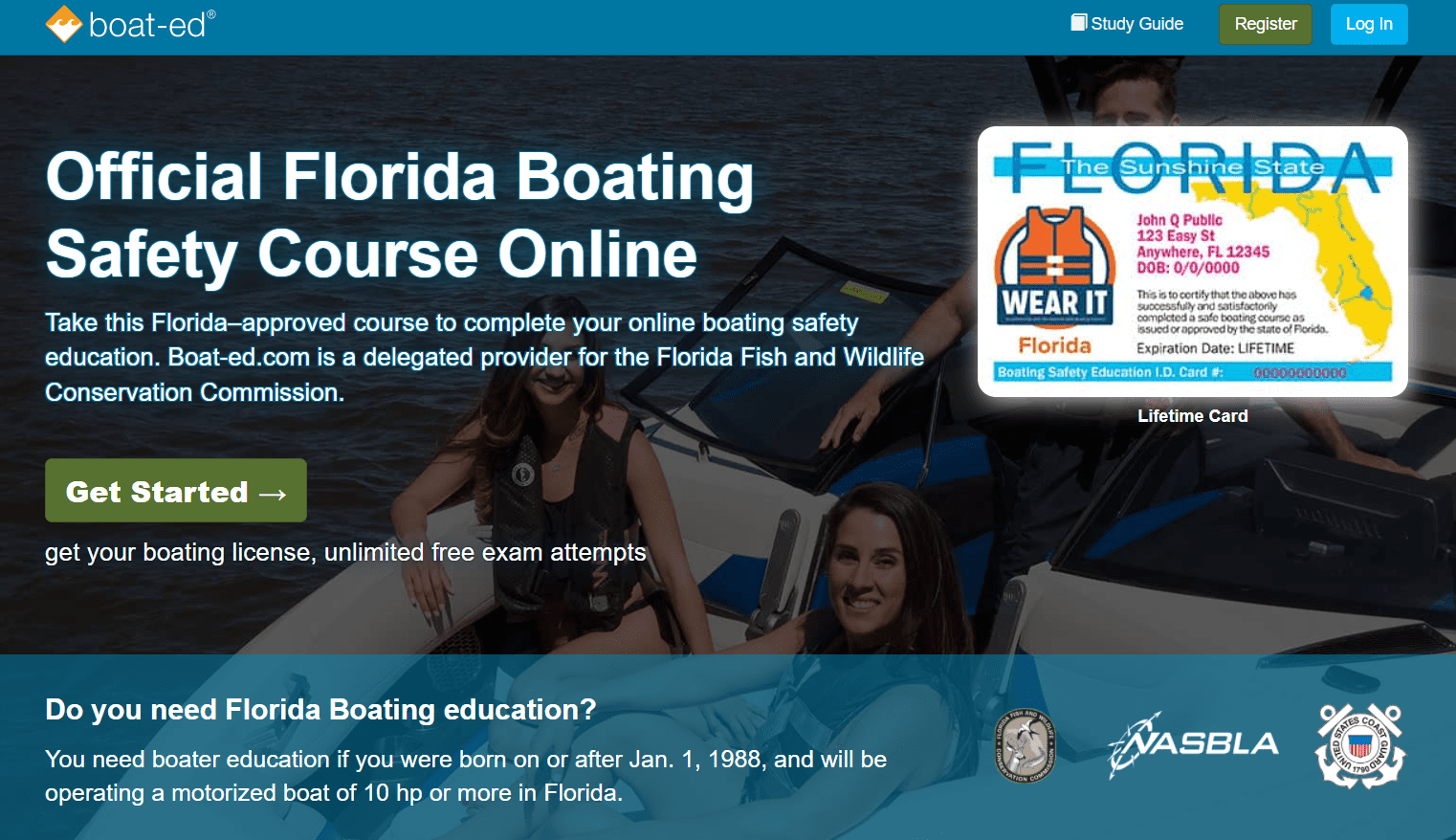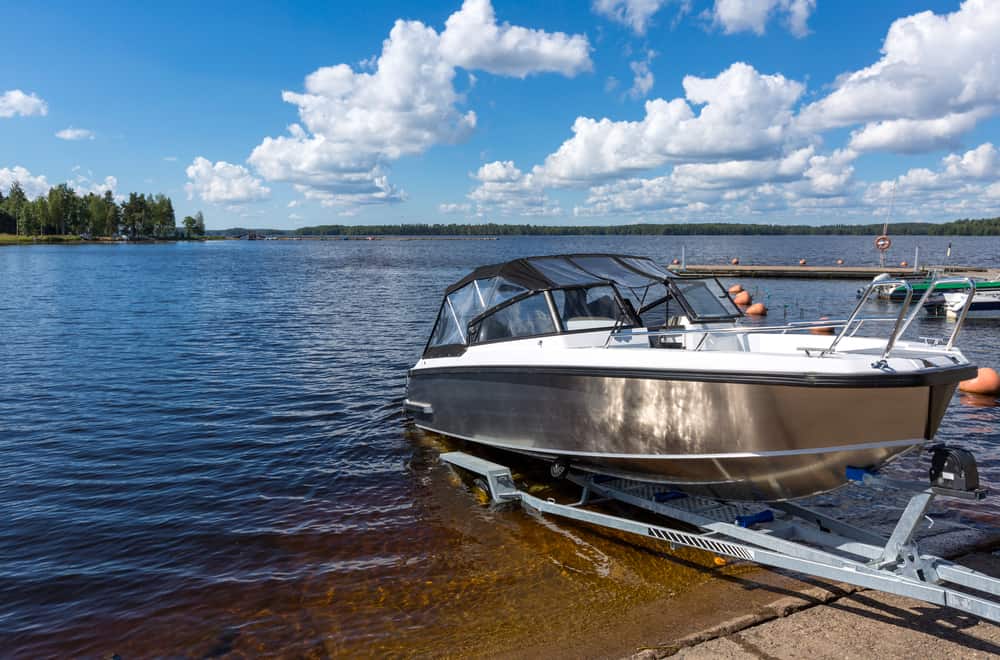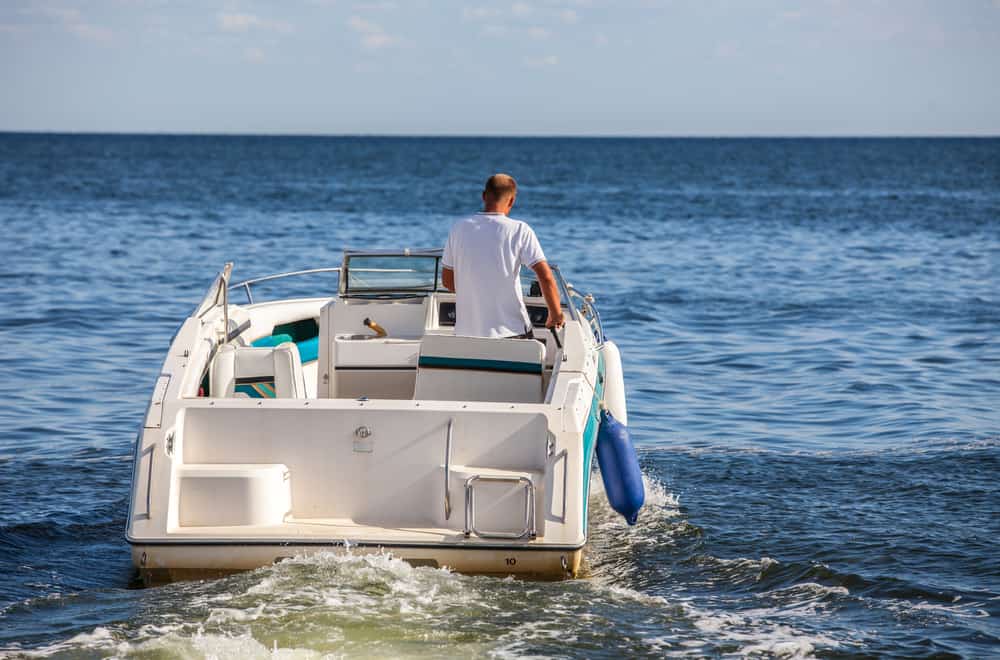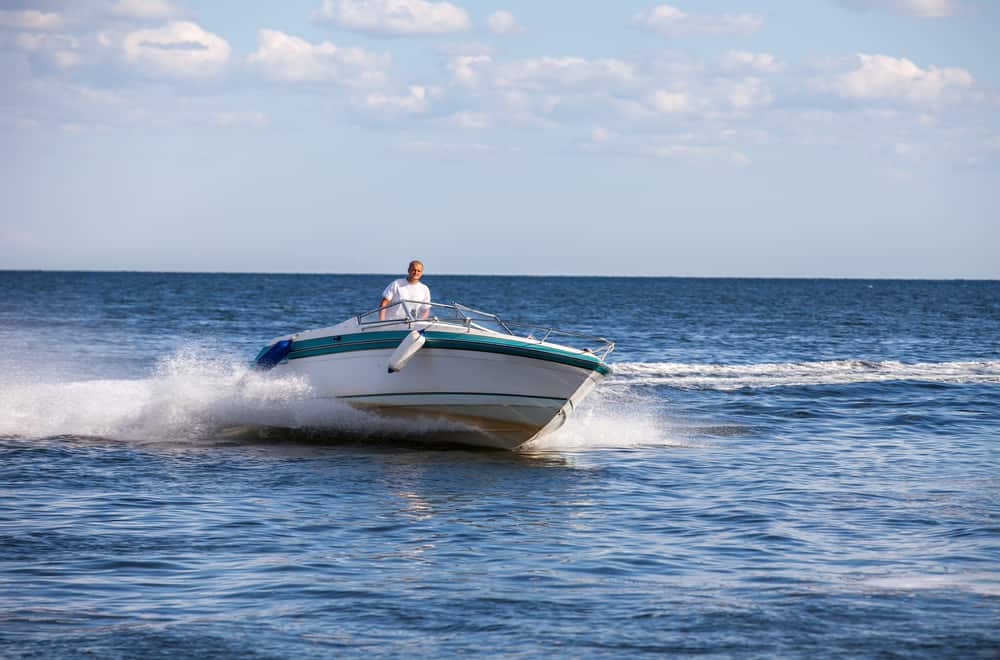As a responsible boat owner, you must understand the licensing requirements for operating a boat in your state. These regulations promote safety and awareness for you, your passengers, and the environment while chartering through various water habitats.
While the licensing requirements may change depending on the state you reside in, you should expect to complete an approved boat safety course at the minimum.
This article will provide you with a basic understanding of boating license requirements, how to obtain an approved certificate, general boating rules and regulations, insurance providers, and some great safety tips.
Table of Contents
What Is A Boating License?
Boat owner regulations have traditionally been more lenient than owning and operating a vehicle. However, as you may imagine, many moving parts are involved with boat operation.
Knowing how to run your engine is not enough to keep you afloat as a boat owner. You must also be aware of insurance requirements, emergency procedures, how to navigate protected waters, nautical map reading, radio communication, and more.
Before diving in any further, let me debunk one boat licensing myth from the start- it is not necessary to have a state driving license before obtaining a boating license.
That said, a blend of knowledge and experience will serve you well as a new captain on the water. For the intent of this article, we are limiting our discussion to the operation of personal watercraft for leisure purposes.
Boat owners who plan on using their boats for commercial use should first contact their state’s Fish and Wildlife Conservation Commission or other natural resources or conservation department for specific licensing and registration requirements.
In any case, it will behoove you to become aware of the various boating laws and guidelines strictly enforceable by the United States Coast Guard (the primary authority for U.S. waterways).
Though a boating license does not include an eye exam or driving test, it does teach the awareness, safety, and life-saving skills necessary to have while exploring our nation’s most beautiful waterways.
How To Obtain A Boating Certificate
Most states allow you to complete the Boating Safety Course either online or in a classroom setting. Depending on your learning style, you should select the most suitable option.
For example, I enjoy the convenience and portability of online courses; however, in some instances, I would prefer a classroom setting where I can interact with experienced instructors.
The United States Coast Guard, U.S. Power Squadron, state boating agencies, and several other sponsors and volunteer organizations typically provide boating safety classes.
Approved Boating Safety Course Providers
While searching for a boating safety course, please ensure that the course selected is NASBLA- approved.
In addition, the United States Coast Guard and your state’s boating safety agencies should recognize the safety course that you intend to pursue. In most cases, your boating license allows you to operate a personal watercraft nationwide; however, I advise you first to inform yourself of state reciprocity guidelines.
Here is a list of the top providers for obtaining your boating license:
United States Power Squadrons
Perhaps as one of America’s most trusted safety course providers, the Power Squadrons group is committed to the safety and well-being of all recreational boat owners and passengers.
They offer a home-study course covering general boating theory and education, safety procedures and guidelines, maritime law and regulations, navigation, and more.
Boat U.S. Foundation
This approved boat safety course is FREE– splitting the learning material into six lessons that you can complete at your own pace. You will cover the Boat, Boating Equipment, Trip-Planning & Preparation, The Environment, Navigation & Maneuvering, Emergency Preparation, and Boating Activities.
In addition to obtaining your boating license, you can return to the Boat U.S. website to discover a range of specific safety topics such as lifejacket use, infants and boating, or crew overboard, to name a few.
The foundation also has advanced courses such as using GPS or weather systems, and if you need a confidence boost, sign up for an On-Water Training Course taught by a licensed Coast Guard Captain.
Boat-ed
Another great alternative is the $34.95 NASBLA-approved course offered online. Their easy-to-navigate website allows you to access your state’s specific learning and examination requirements.
The site also informs you of state-specific age and education requirements and any other special legislation that you should be aware of.
The Basics Of Boating Insurance
Boating insurance covers a range of areas, including:
- Property Coverage: Generally, property covers protect your boat from certain risks, including accidents, theft, and even storm damage.
- Liability Coverage: If you accidentally collide with another boat, this portion of your insurance policy reduces the financial burden you will incur.
- Medical Payments Coverage: This covers medical bills you or your passengers receive to treat injuries incurred during an accident onboard your vessel.
- Uninsured Watercraft Coverage: Some boaters may be uninsured, but if they cause damage to you or your boat, then uninsured watercraft coverage will help pay for damage and loss.
- Trailers, Accessories, & Special Equipment: If you have special equipment on board (fishing) and accessories (instrumentation), you may want to include these items on a policy supplement that you can personalize with your insurance broker.
So how does this relate to boating license requirements? For starters, you will learn about state-specific boating legislation to include registration and insurance requirements in your approved boating safety course.
As an additional incentive, most boating insurance companies will discount your policy premium with proof of completion for one of the state-approved boating license courses. And you may even reap additional discounts from your local marinas and other boating retail facilities.
Boating Insurance Companies
Here are some of the best boating insurance companies available in the United States. Please click on the links below to request a quote:
- Progressive
- Boat U.S.
- Allstate
- State Farm
- United Marine Underwriters
Boating Rules & Regulations
As a boat captain, it is incumbent upon you to operate your vessel safely. Moreover, you are responsible for your passengers, other boats around you, and the great environment we have the privilege of sharing with various marine ecosystems.
Some general tips for safe handling include:
- Avoid exceeding your boat’s capabilities. Continuously operate your boat safely and controlled manner obeying all speed requirements and taking heed to all danger/restricted areas.
- Never operate a boat while intoxicated. In addition, do not handle your boat recklessly, which can quickly put you and others in great danger.
- Adhere to all Coast Guard and Homeland Security regulations. Any breach of these laws can result in punitive action.
The “Rules of the Road” is a maritime-specific handbook that details the operation and navigation responsibilities you have as a boat owner. I recommend that every boat owner purchase and maintain a copy onboard their watercraft, although it is mandatory for larger vessels.
Purchase your copy now for $9.50 on Amazon.
Boating Safety Tips
It is always essential to plan your trip before heading out on the water. Be sure to follow this checklist so that you are a better-prepared boat owner:
- Have your digital or printed Boating License readily available.
- Check that your boat has all the required safety equipment on board.
- Be sure to wear an approved life jacket and ensure your passengers do the same.
- Follow all maritime laws and regulations.
- Never operate a personal watercraft while under the influence.
- Plan your trip before heading out.
- Have an emergency plan and inform all passengers of such.
- Do not take unnecessary risks.
- Consult with local agencies for any area-specific dangers or risks you should know.
Boating License Quick Tips Guide
Remember that when you take to the water, both you and your passengers and other boaters’ safety is critical. So before you book a boat rental or take out your boat for the first time, please ask yourself the following questions to ensure you are in keeping with your state’s boating safety and licensing regulations:
- What are your state’s age requirements for operating a personal watercraft?
- What kind of boat are you legally allowed to operate?
- Are there any restrictions based on your boat motors’ horsepower?
- Does your state require you to complete a Boating Safety Course?
- Is your state-approved safety card recognized in other states?
- What are your state’s boating registration requirements?
- Are you required to carry boating insurance?
- What additional safety topics or advanced courses exist (online or locally) to increase your knowledge and awareness of specific situations or equipment suited for your boating purposes?
Conclusion
Boating is one of America’s favorite family recreational activities, but an unaware boat owner could be extremely dangerous to themself and others. So, various agencies have contributed years of knowledge and experience to provide you and other boat owners with a safety course that will enable the safe operation of personal watercraft on our nation’s finest waterways.
Be sure to ask yourself the questions listed in the Boating License Quick Tip Guide and hurry up to sign up for your state-approved Boating Safety Course.
If you have any questions or concerns about becoming a safe boat operator, please leave your questions or concerns in the comment section below.

Joseph Fabiano is a writer, nature enthusiast, and stay-at-home father of two wild and free boys. He enjoys starting his day with a good run, hot mug of coffee, and a jump in the Ionian Sea, no matter the weather. Currently based in the Apuglia region of southern Italy, he enjoys discovering the world with his best traveling buddies (his little monkey’s and beautiful wife) at every given opportunity. Every trip, long or far, should be made an adventure according to Joseph as he believes inspiration and creation is right in front of you.
